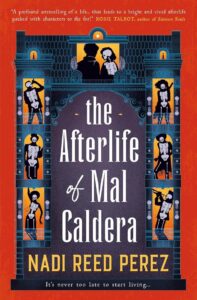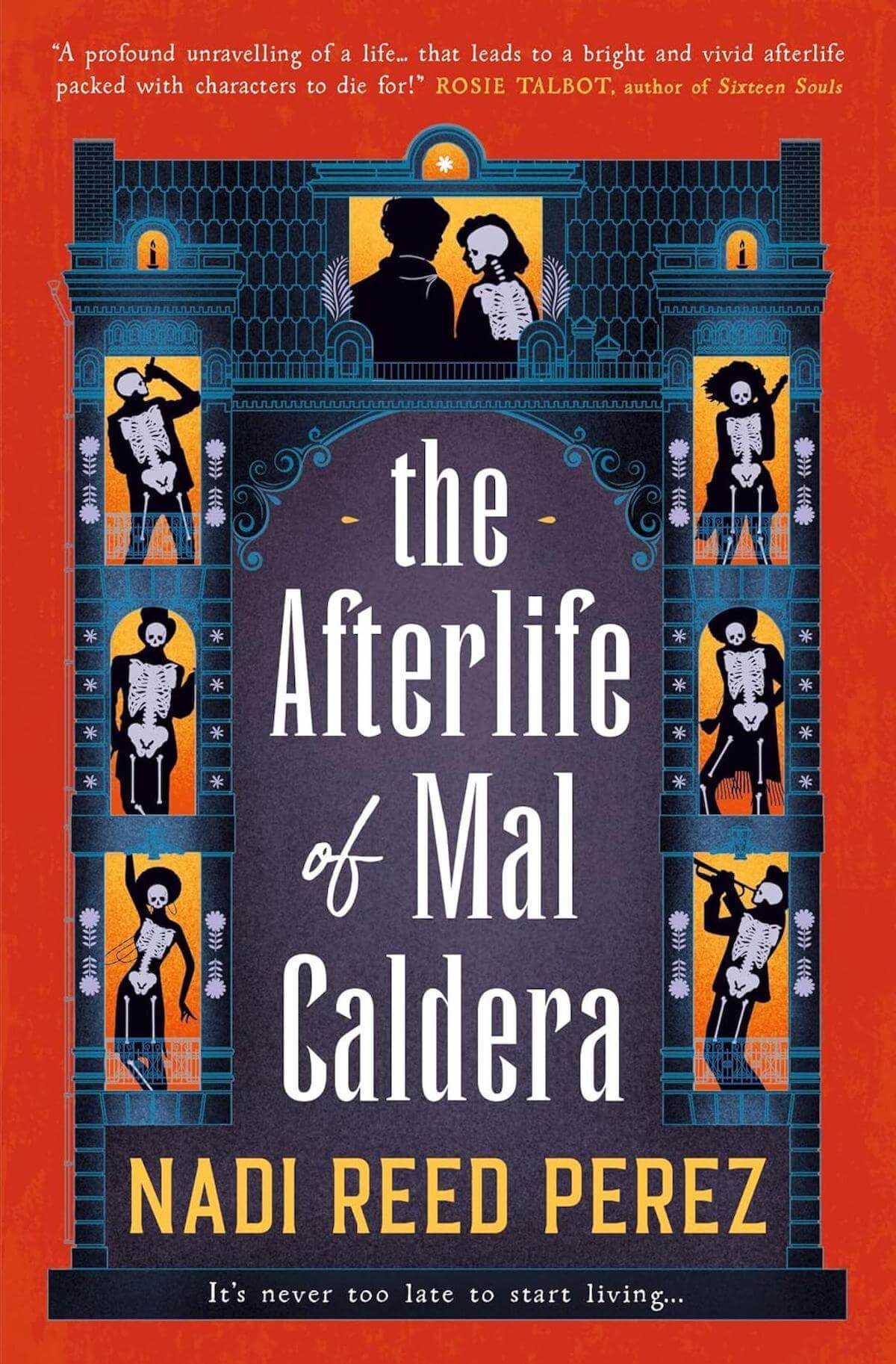Living dead
A review of The Afterlife of Mal Caldera
A review of The Afterlife of Mal Caldera
Nadi Reed Perez (they/she), a Denver-based writer, is not new to fantasy. They have been reading and writing stories for a long time, and they are a contributing writer for the high fantasy podcast series The Call of the Flame. (You can check out the podcast series here.) The Afterlife of Mal Caldera, their debut novel, is a departure from their work on the podcast. It includes elements of ghost stories, contemporary urban fantasy and romance. It feels lived in—while Perez never reveals the name of the city where the story takes place, I couldn’t help but imagine it in Denver, where the seasons are stark and the nightlife is loud.
The protagonist of The Afterlife, Mal Caldera, is a former lead singer and drummer who hit rock bottom several years before the book begins. After a young adulthood spent drinking, screaming into a microphone, and sleeping with anyone who got close enough, Mal finds herself lost and aimless. She can’t keep a job, has no personal goals to motivate her and no friends to talk to. Her relationship with her family is strained—the memory of her father who died when she was small, her ultra-religious mother who disowned her after she dropped out of college and her younger sister who grew up coddled and sheltered—all stir up Mal’s discontent.
 These conflicts lead to the moment when 27-year-old Mal dances on a ledge, slips into blackness and wakes up a ghost. The novel opens days later:
These conflicts lead to the moment when 27-year-old Mal dances on a ledge, slips into blackness and wakes up a ghost. The novel opens days later:
“It didn’t bother me much, being dead. I hadn’t really been living anyway. At least now I’d never have to do the dishes in the sink, or worry about the bills piled on the table, or nurse any guilt about staying in every night. Nothing urged me to get out of bed anymore. It felt like I’d been rehearsing for this a long time—how to be a ghost.”
These opening sentences highlight the central question of this story: what does it mean to live? This is not a new question, of course, but Perez’s approach is unique because their protagonist is dead from the start of the novel. This adds a layer of complexity for the narrator, who must reflect on her life choices while navigating the surprising world of the afterlife.
In the afterlife, Mal meets ghosts from different time periods, all of whom spend their days lazing and their nights partying. For a while, she resists the temptation to join them. She is desperate to communicate with her sister, and that desperation leads her to a medium—a young man who has seen ghosts all his life and believes they exist solely in his mind. What follows is a series of events in which Mal experiences moments from other people’s lives: their mistakes, their losses, their deaths. And throughout these experiences she considers her own pre-demise fixation with death, the oblivion she’d always felt calling to her while she was alive.
Gradually, as she’s building relationships with strangers both dead and living, she starts to let go of that need for darkness:
“For a moment, I felt an instinctive tug. I’d once wanted exactly that—oblivion. But it didn’t tempt me so much anymore. Just a little, the lingering echo of self-hatred whispering that I’d be better off going before everyone else left me first. Now, I had so many more people who I knew weren’t as ready to abandon me as that voice claimed.”
Ironically, Mal is more alive in the afterlife than she ever was while she was breathing. It’s a bittersweet and frustrating realization for her. A consolation is that through this process, she learns to love her family, her friends and herself.
Story elements that attach to all ghost stories in one way or another are the logistical details of ghosthood. Mal does not have a physical body in the afterlife and can move easily through walls, but she is also solid enough to pick up objects and touch the living. It is hard to figure out just how solid she is, especially during scenes of sexual intimacy, adding to the disquieting suspicion that being a ghost is metaphysically challenging.
Ultimately Mal transforms from someone who yearned for death into someone who yearns for life. The Afterlife of Mal Caldera doesn’t answer the existential quandary of what it means to live, but it works as a reflection from multiple perspectives on the complications of living. And that’s important, especially for those who are beginning to understand their own mortality. Mal’s story offers the reader plenty to ponder.
Content warnings: suicide, death, psychiatric institutionalization, emotional abuse, substance abuse, medical trauma, sexual content, adult language
While Marissa Harwood was born in Omaha, Nebraska, she moved to Colorado when she was four days old and considers herself a native. She grew up in the shadow of the Rocky Mountains and spent much of her childhood camping, hiking and building forts in the woods. She earned a BA in English and a Secondary Teaching License from the University of Colorado at Boulder. Later, she attended Western Colorado University and earned an MFA in genre fiction. She has taught English at three K-12 schools and two Colorado colleges. Currently, she lives in Greeley, where she teaches high school, plays with her daughter (a true CO native) and reads a lot of books. She hopes to earn a doctorate in the near future.
Click here for more from Marissa Harwood.

